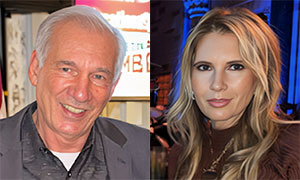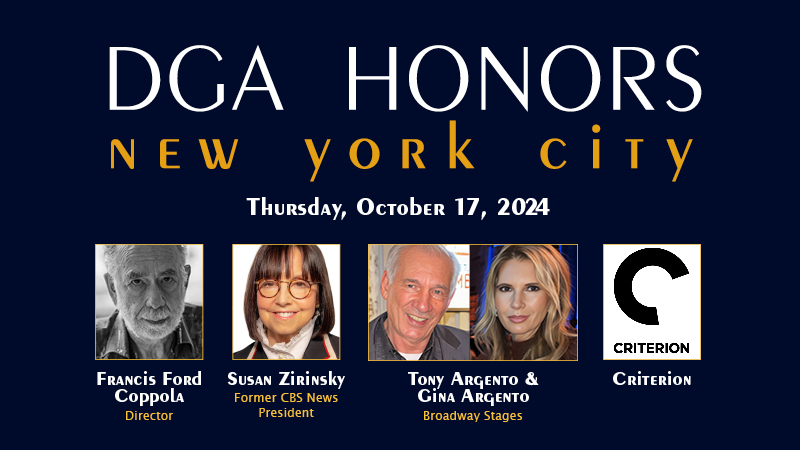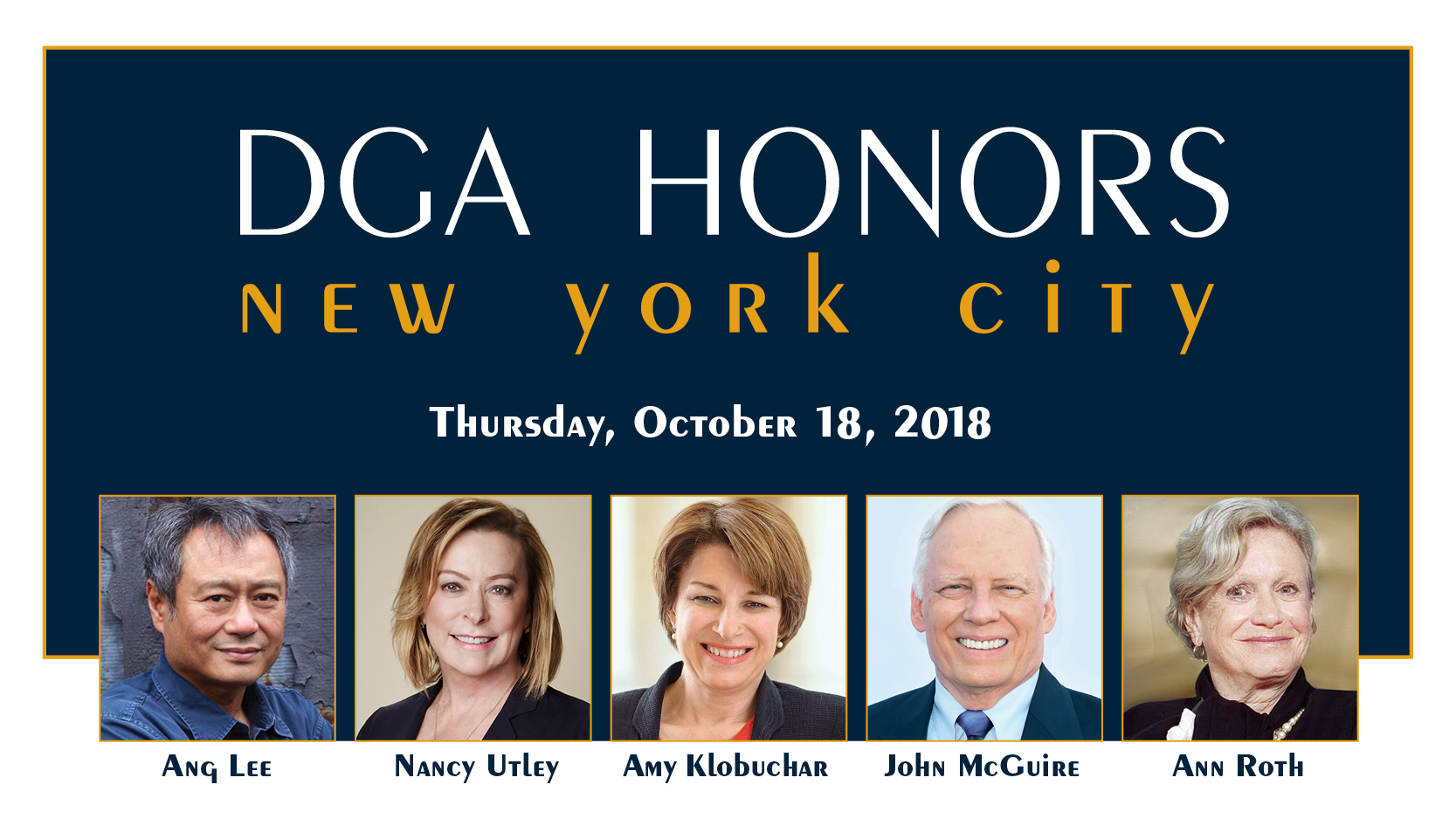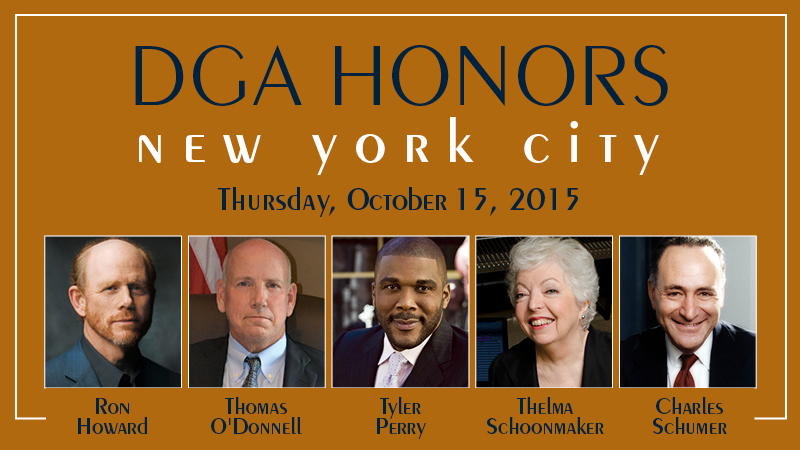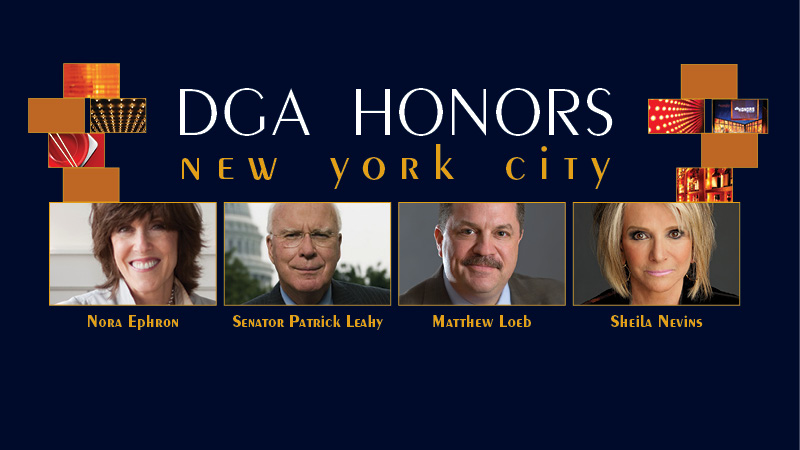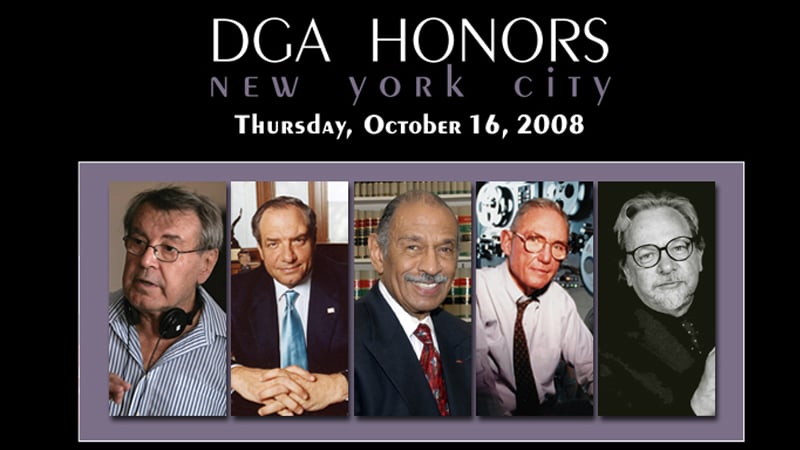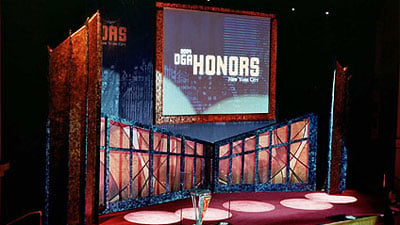
DGA Honors

View:
2024
DGA Honors to Recognize Leaders in Film and Television in Celebration of 25th Anniversary
Francis Ford Coppola, Susan Zirinsky, Tony & Gina Argento, Criterion, and Sesame Street to be awarded the DGA Honor
Director Francis Ford Coppola, See It Now Studios President and former CBS News Executive Susan Zirinsky, Broadway Stages Founder Tony Argento along with its CEO & President Gina Argento, the film distribution company Criterion, and the children's program Sesame Street are the selected honorees of the 2024 DGA Honors which will be held at the DGA Theater in New York City on October 17, 2024.
Celebrating its 25th anniversary and presented for the first time since the COVID-19 pandemic, DGA Honors pays tribute to the individuals and institutions who have an enduring commitment to producing the world’s best art and entertainment.
“We are incredibly proud to celebrate the 25th anniversary of DGA Honors, and to recognize the accomplishments of visionary storytellers who have greatly influenced American culture through their tremendous contributions to film and television,” said DGA President Lesli Linka Glatter. “Our honorees have exhibited unparalleled dedication, creativity, and passion for our craft. We pay tribute to the iconic Francis Ford Coppola, who has made an indelible mark on cinema and inspired generations of Directors; Susan Zirinsky, whose fearless devotion to investigative journalism has kept the world informed during challenging times; Tony and Gina Argento, whose unwavering support has fueled New York’s vibrant production community; and the exceptional team at Criterion, who preserve and share some of the most significant films in history. As Directors and members of the Directorial team, our success is thanks to the remarkable people we collaborate with, and today, we honor those who inspire us, and who make our work possible.”
“DGA Honors is a special evening that celebrates the art of filmmaking and the incredible power of television to inform and connect people worldwide,” said DGA National Vice President Laura Belsey. “This year’s honorees represent the broad ecosystem needed to bring a Director’s creative and artistic vision to life, reaching and inspiring audiences across the globe. We look forward to honoring these remarkable individuals and organizations.”
Past DGA Honors recipients have included influential filmmakers Ang Lee, Ron Howard, Nora Ephron, Robert Altman, Spike Lee, Mike Nichols, Sydney Pollack, and Martin Scorsese; as well as leaders in entertainment, labor, and politics such as Law & Order creator/producer Dick Wolf, Saturday Night Live producer Lorne Michaels, HBO Documentary Films President Sheila Nevins, Fox Searchlight Chairman Nancy Utley, Robert De Niro, Danny Glover, former Paramount Pictures CEO Sherry Lansing, IATSE International President Matthew Loeb, former AFL-CIO President John Sweeney, Senator Charles Schumer, Senator Amy Klobuchar, and Mayor Michael Bloomberg.
Past presenters and hosts have included Meryl Streep, Oprah Winfrey, Tom Cruise, Halle Berry, Helen Mirren, Julianne Moore, Alan Cumming, Jude Law, Richard Belzer, Dave Chapelle, Sam Waterston, Gwyneth Paltrow, Ellen DeGeneres, Matt Dillon, Hank Azaria, and Francis Ford Coppola.
Honoree Biographies
 Francis Ford Coppola Francis Ford CoppolaFrancis Ford Coppola is one of the most acclaimed filmmakers of our time; a six-time Academy Award-winning director, writer, and producer of such films as Patton, The Godfather Trilogy, American Graffiti, The Conversation, Apocalypse Now, The Outsiders and Bram Stoker's Dracula. As the co-founder of American Zoetrope with George Lucas, he initiated and nourished the careers of talents such as Carroll Ballard, John Milius, Sofia Coppola, and actors Al Pacino, Robert De Niro, James Caan, Harrison Ford, Richard Dreyfus, Diane Keaton, Robert Duvall, Matt Dillon, and Diane Lane. As a writer, director, producer, and technological pioneer, Coppola has created a body of work that has helped shape contemporary American cinema. Coppola’s latest film Megalopolis is a Roman epic set in modern times with an all-star cast including Adam Driver, Giancarlo Esposito, Nathalie Emmanuel, Jon Voight, Laurence Fishburne, and Aubrey Plaza. The film premiered at the prestigious Cannes Film Festival earlier this year and will be released theatrically and in IMAX globally on September 27, 2024. |
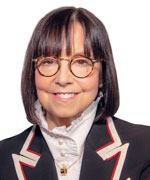 Susan Zirinsky Susan ZirinskySusan Zirinsky is the former president and senior executive producer of CBS News. Over the course of her 40-year career, Zirinsky redefined broadcast journalism, earning numerous awards and accolades including Emmys and Peabodys for her work covering major events and producing groundbreaking documentaries. Her influence on the industry is profound, having mentored countless journalists and set new standards for news storytelling. Now, as president of See It Now Studios, she leads the development, production, and distribution of original documentaries and docuseries for Paramount+, CBS, Paramount Global networks, and third-party platforms. Since its launch in September 2021, See It Now Studios has become a key provider of non-fiction, multi-platform content, producing over 50 hours of programming in 2023 alone. Notable projects include the Emmy-nominated Crush, the Sean Penn-co-directed Superpower and The 26th Street Garage: The FBI's Untold Story of 9/11, narrated by Tom Selleck. |
In 1983, Tony Argento founded Broadway Stages, transforming a dilapidated Astoria theater into the company’s first soundstage. Initially focusing on commercials and music videos for iconic artists like Aretha Franklin, Beyonce, and Jay-Z, the company grew rapidly. Gina Argento, Tony’s sister, joined after earning her master’s degree from St. John’s University. Together, they’ve become pillars of New York’s film and television industry. Expanding to Greenpoint, Brooklyn in the early 1990s, the Argentos made significant investments that bolstered both their business and the local community. Today, Broadway Stages boasts over 4 million square feet of space across 60 soundstages in three boroughs. Committed to community, the Argentos emphasize giving back through support for education, the arts, and environmental initiatives. |
Criterion gathers the greatest films from around the world and presents them in definitive home video editions through the Criterion Collection, a continuing series of important classic and contemporary films on DVD, Blu-ray, and 4K disc; and through the Criterion Channel, a movie lover’s dream streaming service, featuring new films, fresh from theaters, alongside timeless classics in new curated collections every month. The supplemental features, director commentaries, behind the scenes footage, and documentaries they have developed over the past 40 years have made Criterion the most significant archive of film culture available to the home viewer. |
Sesame Workshop is the global impact nonprofit behind Sesame Street and many other favorite children’s programs. For over 50 years, the organization has worked at the intersection of education, media, and research, to create joyful experiences that enrich minds and expand hearts, all in service of empowering and inspiring children to build a better world. Sesame Workshop is the driving force behind beloved characters and iconic shows that have influenced generations of viewers. The organization is a champion of outreach in local communities across America and around the globe. Today, their efforts have helped to bring playful early learning to families in more than 150 countries. Sesame Workshop is on a mission to help children everywhere grow smarter, stronger, and kinder. |
| Click here to view photo galleries and other content from previous DGA Honors. |
About the DGA:
Since its founding in 1936, the DGA has fought for the economic and creative rights of its members; protected their ability to financially benefit from the reuse of their work; established strong pension and health plans; and established jurisdiction in new technologies and distribution platforms. Today we represent more than 19,500 Directors and members of the directorial team working in film, television, commercials, news, sports and documentary.
Contact
- For general information:
DGA Awards Office310-289-2038Awards@dga.org
